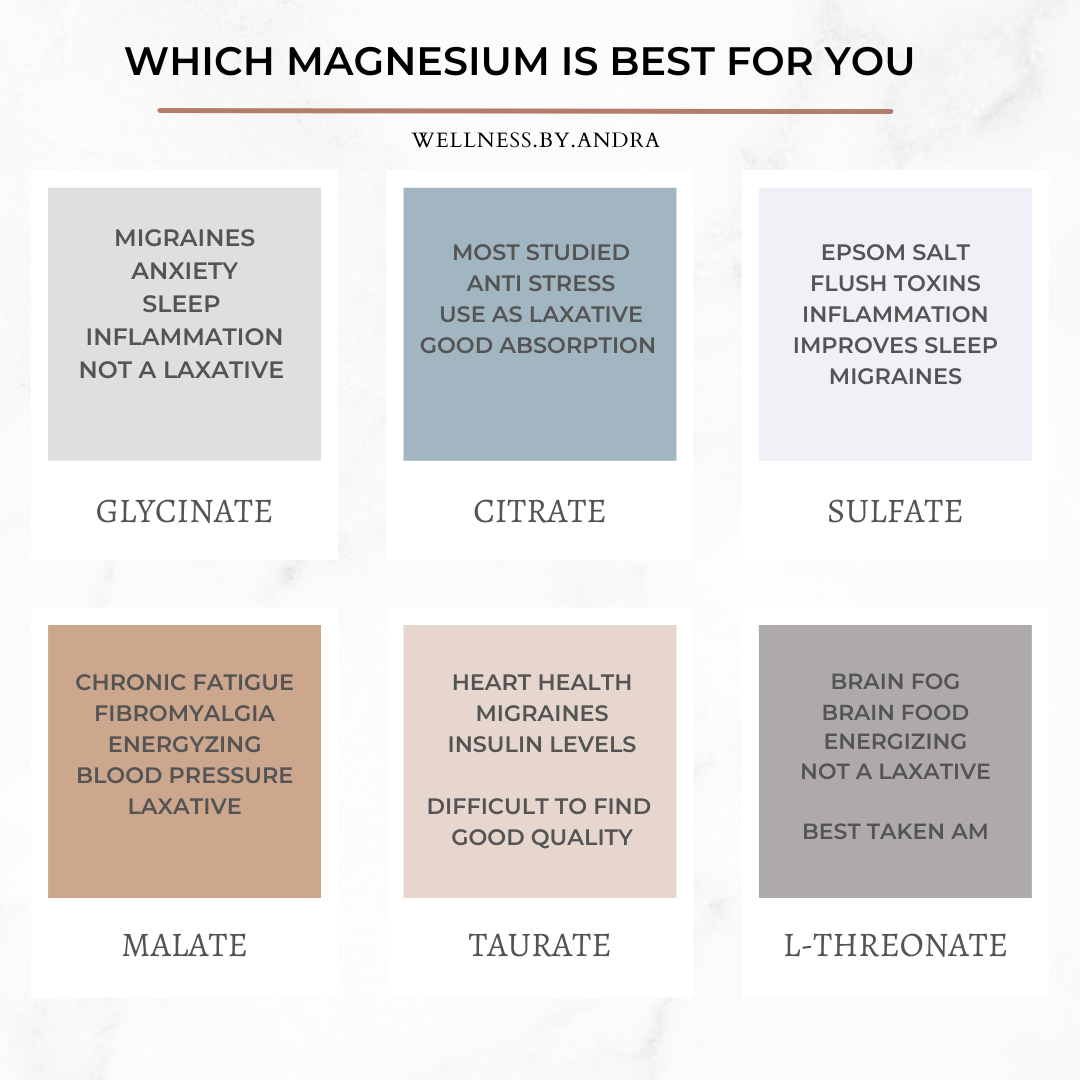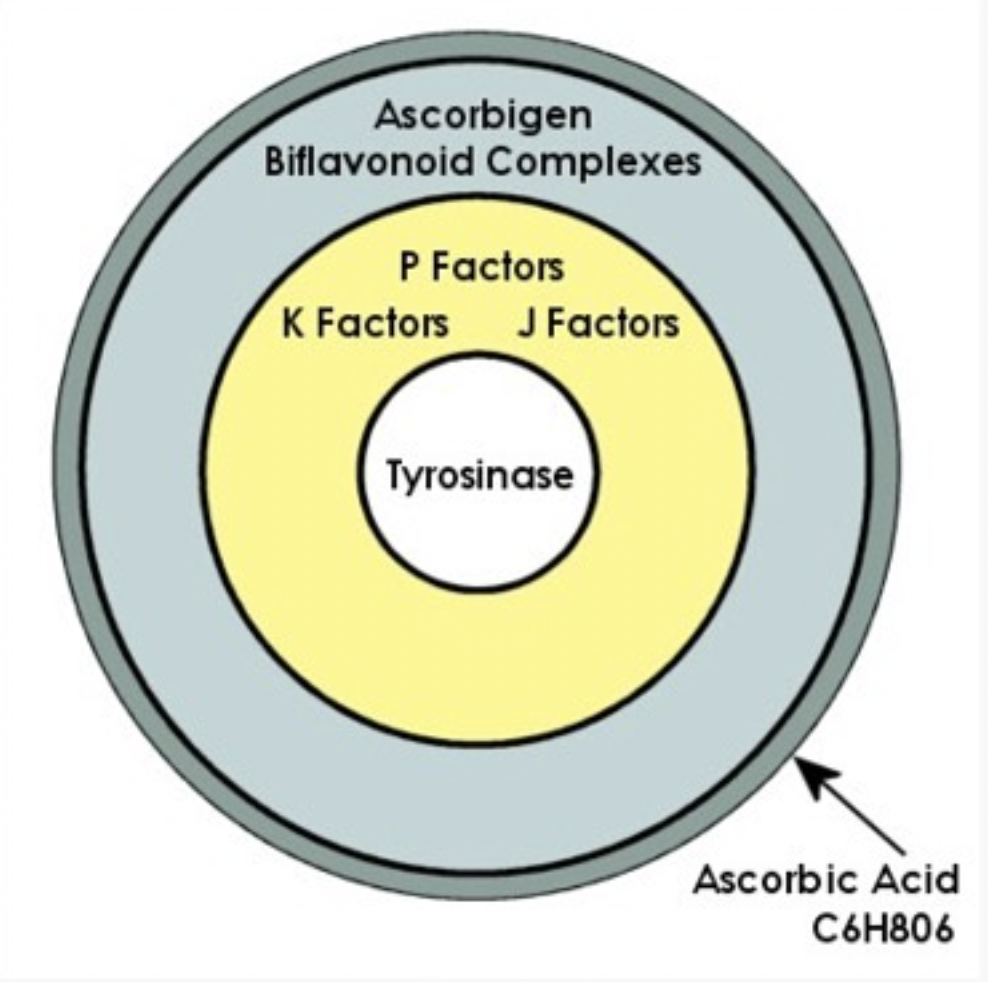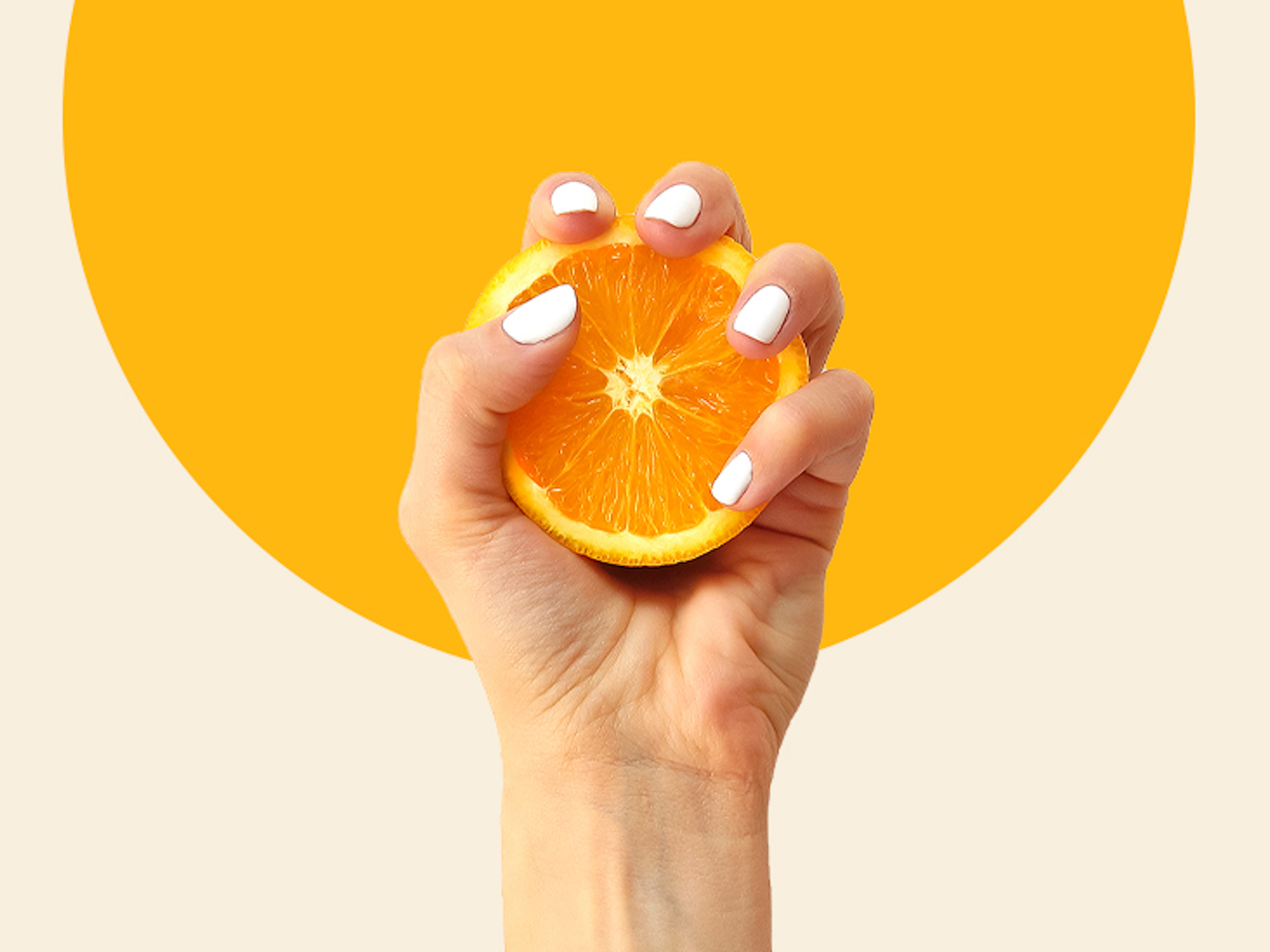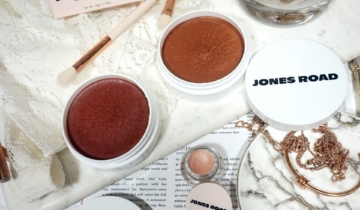As a naturopath that focuses on the balance of micronutrients: minerals and vitamins, I often see patterns through consultations and scientific literature. One of those trends is the lack of incoming minerals, in an easily absorbable form, as well as the high burn rate of micronutrients through stressful lifestyles. Today, I would go in depth on three micronutrients that will boost energy levels, provide adrenal support and strengthen immunity for men and women during their fertility and high stress stage of 25-45 years old.
I would like to point out that bio-individualism and a personalized protocol, that considers your lifestyle and nutrition, should be the priority. Nonetheless the 3 micronutrients highlighted below could refill the lack of some nutrients and provide vitality.
Magnesium
Magnesium is unfortunately not easily acquired through food, and with age, with the use of more prescribed medications and lower quality of nutrition, our gut doesn’t absorb it so well.
Magnesium is responsible for over 3500 enzymatic functions in our body, it is also used in our mitochondria to produce energy. Its status is highly associated with stress levels and increased “Magnesium Burn Rate”. Stress leads to an increase in the secretion of adrenaline, which causes loss of magnesium and energy available for cells. This deficiency leads to an increase in calcium, which results in excitability and stress. Magnesium deficiency is linked to accelerated aging and cellular damage. Magnesium is a precursor to producing Vitamin D, without it our bodies have a harder time metabolising.
With so many kinds of magnesium, it can be hard to know which one to pick for your needs.
As a naturopath who focuses on mineral balance, I am passionate about using the optimal forms of minerals, so that you don’t end up wasting your money for something that is poorly absorbed!
The image below will help you choose the right one for your journey, please speak to your doctor before adding any supplementation to your protocol.

Sea Salt
Are you afraid to add salt to your meals because it might increase blood pressure or retain water? The truth is the exact opposite, it’s like blaming the oven for burning the chef’s meal. After magnesium, our 2nd most used mineral by the body is salt. It also acts as an electrolyte, which “spark plugs” the body.
- Lowering inflammation and cramping
- Helping magnesium absorption
- Suppressing stress hormones (and boosting anabolic ones!)
- Improving insulin sensitivity
- Increasing womb healing (hello mommas!)
- Helping you sleep
- Relieving constipation
- Promoting healthy blood pressure
When we are low in sodium, we can experience:
- Increasing blood pressure, since kidneys are trying to retain the little sodium it gets.
- Our adrenal glands get alarmed and try to retain the little sodium it gets by releasing potassium, creating again blood pressure and water retention.
- Dopamine levels lower, allowing stress hormones like adrenaline take the front seat and raise blood pressure.
Quality does matter! White pure sea salt is the way to go, table salt is “purified” of all beneficial trace minerals, leaving us with only sodium and added iodine. Pink contains iron and grey salt can be contaminated with heavy metals (thus the grey color).
Whole Food Vitamin C
Ascorbic acid is not the full Vitamin C story.
Ascorbic acid, which is mainly found in all synthetic supplements and multivitamins, is just one component of an entire vitamin C complex. As a result, vitamin C is often misunderstood.
HISTORY: Unfortunately, back in the 1930s when Recommended Daily Allowances were established, government scientists decided that vitamin C should be rated according to the amount of ascorbic acid it contains. Ascorbic acid became the marker, ignoring all the other nutritional bonds ascorbic acid is attached to.
FACTS: The vitamin C complex found in nature consists of copper, enzymes, bioflavonoids and other components that are collectively referred to as the P factor. These P factors serve the body in numerous other ways besides antioxidant activity. The P factors support:
- The vascular system.
- Make the vessels tougher and more durable.
- Improve the integrity of the capillaries.
- It also contains copper which is a cofactor in several enzyme systems in the body. It is a catalyst in the creation of hemoglobin in red blood cells and synergistically assists vitamin C in collagen and elastin formation, which supports the integrity of connective tissue.
Whole fruit supplements like Camu Camu are a great source, ½ teaspoon of powder equals to 200% of your Daily Value! Sources of whole foods and supplements:
- Fresh fruits and vegetables
- Camu Camu
- Elderberry
- Amla
- Acerola Cherry

Article contributed by Andra Sitoianu
To reach Andra, please visit www.wellnessbyandra.com or send a quick message to @wellness.by.andra
Feature image via Pinterest





 No products in the cart.
No products in the cart.
So informational ! It is sometimes hard to wrap your head around all the different supplements and vitamins/minerals out there. This definitely helps break it down !